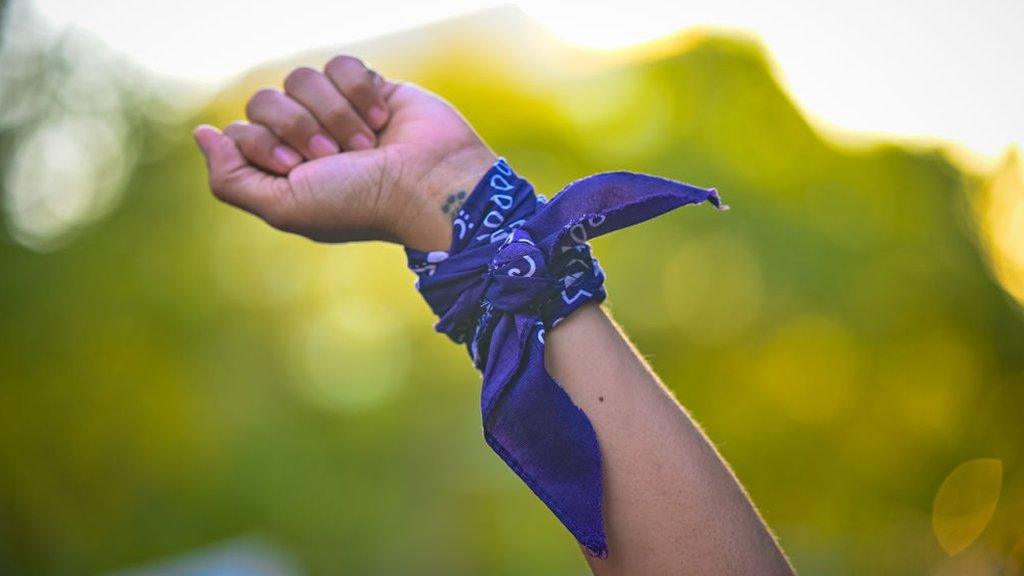Newmarket: Bid to honour forgotten first lady of the turf
- Published
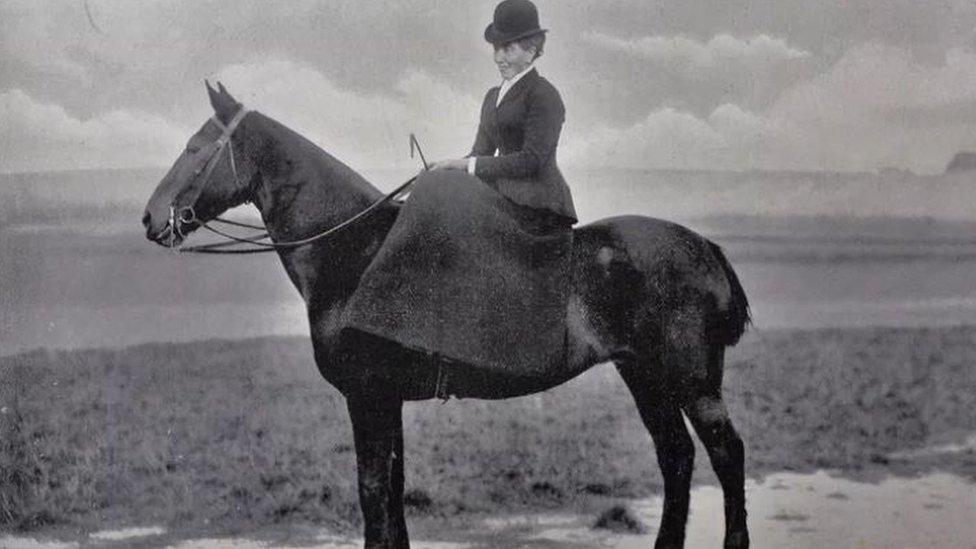
Pioneering racehorse trainer Ellen Chaloner was featured in the pages of the Racing Illustrated book
A bid to commemorate the first woman officially allowed to train racehorses almost 140 years ago has been launched.
Ellen Chaloner was granted the permit by the UK Jockey Club in 1886, but she died more than 20 years before women were legally allowed to train horses as a profession.
On the eve of International Women's Day, relatives and leading industry figures came together to remember her.
"She was a very formidable lady," said her great-granddaughter Susie Wilks.
"She was very well known in Newmarket, not just because she was a lady trainer, but I believe she was a very good judge of horseflesh," she added.
"Many trainers buying horses at sales would consult her."
Mrs Chaloner died in 1944 after outliving all her children, and her grave in Newmarket is marked with a simple wooden cross.
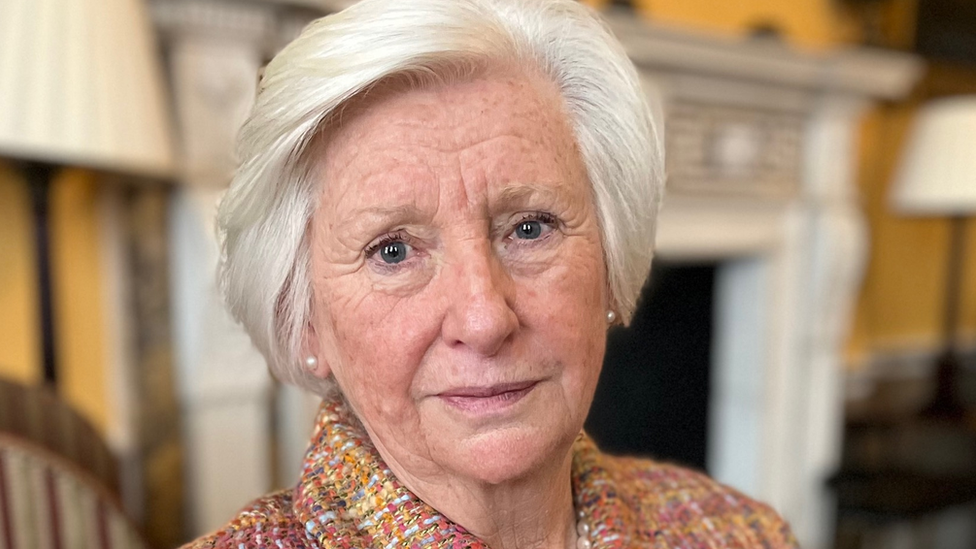
Susie Wilks said it was sad not much was known in the family about her great-grandmother as her children had died before her and her possessions sold on
Mrs Chaloner came from a horse racing family and enjoyed success at Ascot.
Her father and husband both trained winning horses, while her son went on to ride for her - and her great-great grandson is the trainer and nine-times Irish champion jump jockey, Charlie Swann.
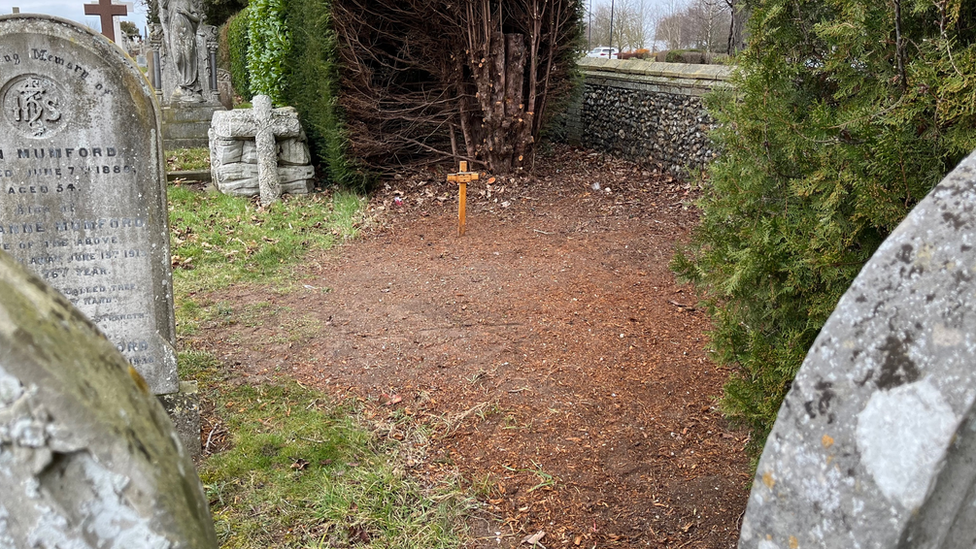
Ellen Chaloner's grave is marked out with a wooden cross in a corner of a Newmarket cemetery close to where she rode her horses
It is hoped an appeal to raise £6,000 to replace the makeshift wooden cross with a headstone will enable a lasting homage to her feats.
A race at Newmarket's Guineas Festival has also been renamed in her honour in May.
The pioneer retired in 1894, but it wasn't until 1966 that more women were given the right to train racehorses in Britain after a High Court ruling.
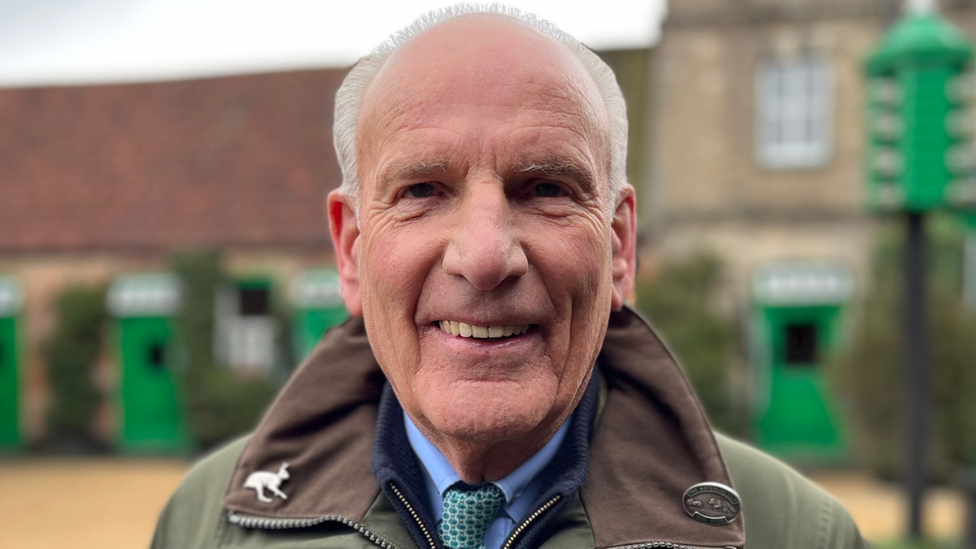
Racing trainer Sir Mark Prescott now owns Mrs Chaloner's former yard in the Suffolk town
Mrs Chaloner took over as a trainer from her husband, who died aged just 46 in 1886, and stabled her horses at Osborne House.
The site was sold with all its contents when Mrs Chaloner died, and is now owned by top trainer Sir Mark Prescott.
"More or less nothing has changed in this yard... if she walked in here with her son they'd find their way around perfectly satisfactorily," said Sir Mark.
"This was their business... buying and selling mainly.
"Her father trained classic winners, her brother trained classic winners and her son rode classic winners - so she was through and through horse racing."
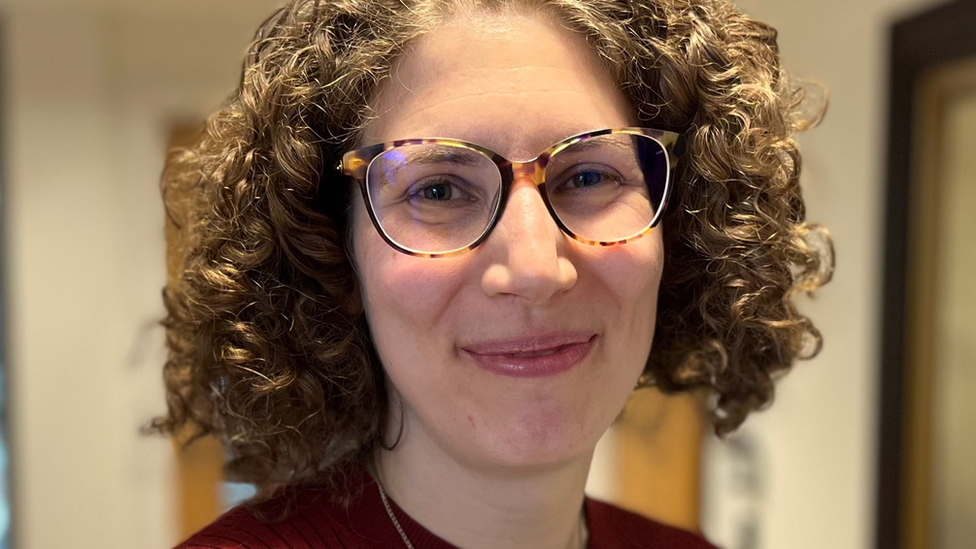
Esther Harper found a Census record for Ellen Chaloner documenting her unique profession for that time
Historian Esther Harper, who undertook a doctorate while working at the town's National Horse Racing Museum, found the 1891 Census which recorded Mrs Chaloner's profession as a racehorse trainer.
"She would have been regarded as a little bit of a curiosity," said Dr Harper.
"When she first took over as trainer and her son was apprenticed to her there was a controversy that he couldn't claim his apprentice's allowance in a race because the son could not possibly be apprenticed to a woman.
"She was definitely coming up against people who would rather she wasn't training, but at the same time many people really respected her."
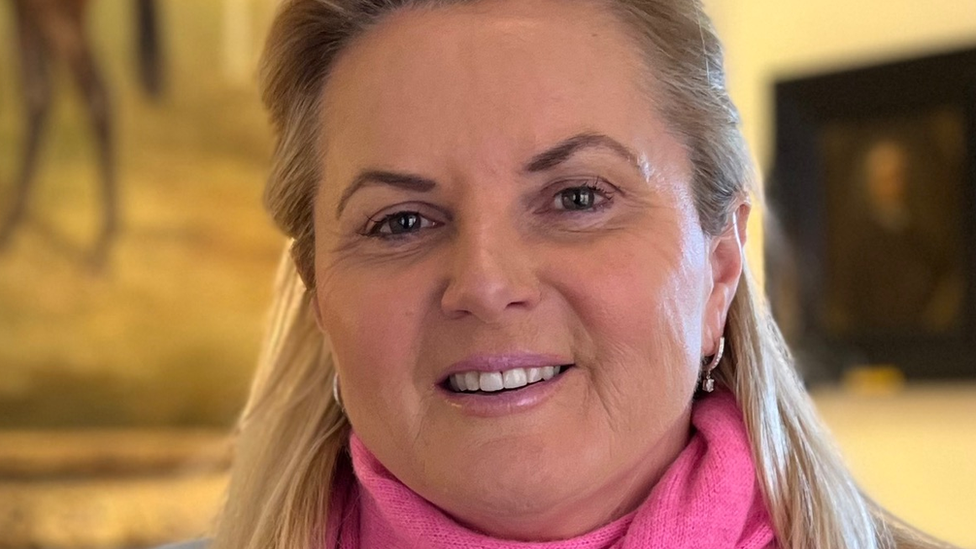
Horse trainer Gay Kelleway said she had been "amazed and fascinated" when she discovered there had been a licensed female trainer in Victorian times
Newmarket trainer Gay Kelleway - the first female jockey to win at Royal Ascot, who received her first training licence in 1992 - said it took decades for another woman to achieve what Mrs Chaloner did.
"They probably felt 'just let it go' and gave her a licence because she came from a racing background and her husband had died, so thought the paperwork was easy enough to hand it over," she said.
"But after she retired from training, they wouldn't grant one to a woman trainer."
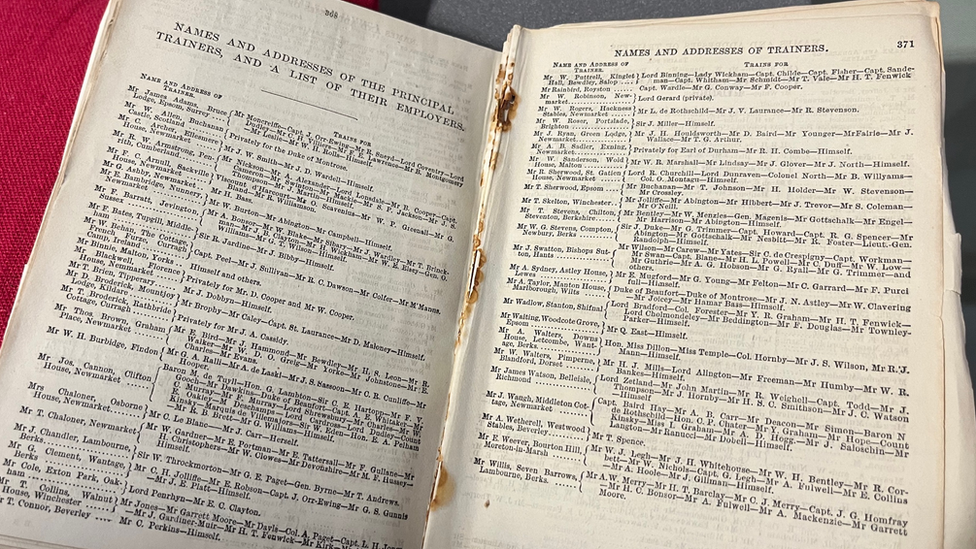
A register of racing trainers features Mrs Chaloner's name

Find BBC News: East of England on Facebook, external, Instagram, external and Twitter, external. If you have a story suggestion email eastofenglandnews@bbc.co.uk, external
Related topics
- Published9 September 2022
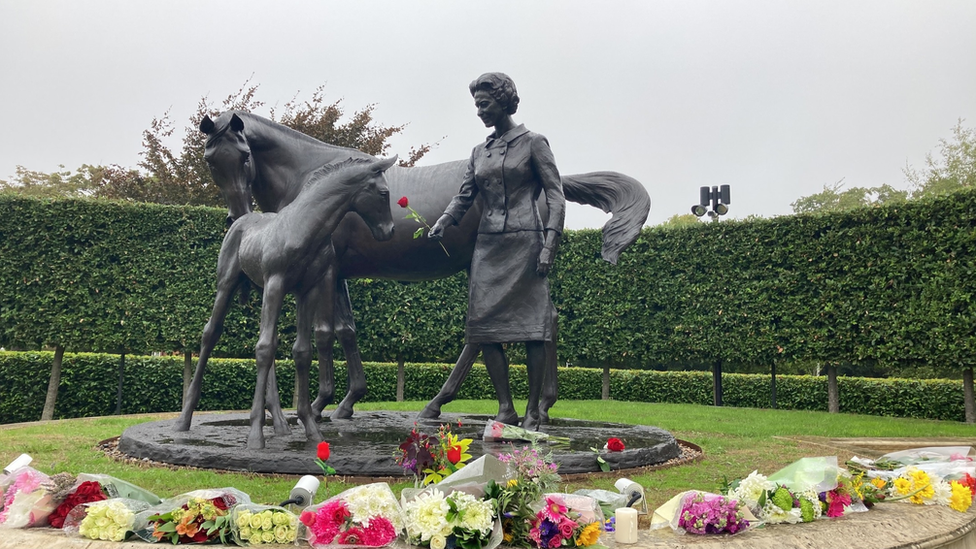
- Published30 April 2016
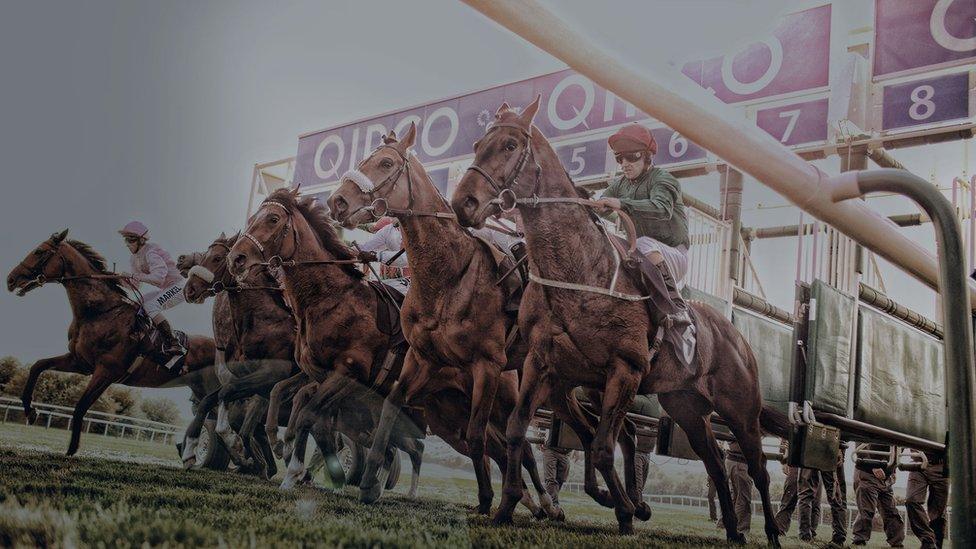
- Published8 March 2024
